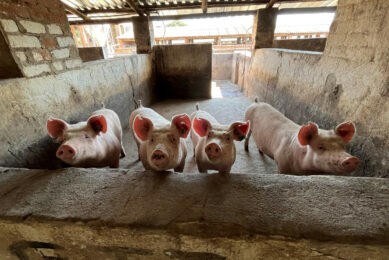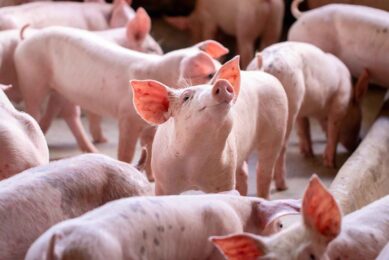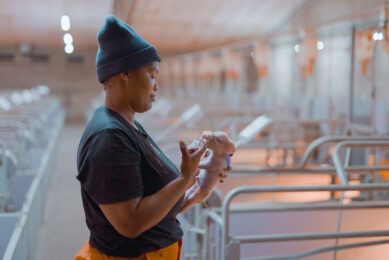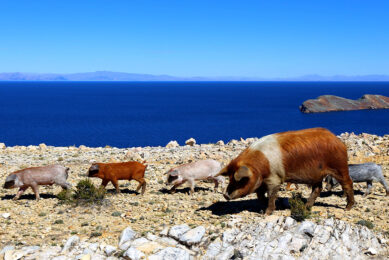South Africa culls pigs to manage PRRS
Five thousand pigs from small farms in Caledon, Worcester and Malmesbury in South Africa will have to be culled during the next few weeks after an outbreak of PRRS at a farm in Klapmuts about two weeks ago.
Mike Heramb, chairperson of the Cape Pork Producers Association, said his organisation had met an abattoir to discuss the culling of the pigs, which he hoped would start by the end of next week. “We’re in the process of getting the whole thing on track,” said Heramb.
Only small farms
He said the disease was not necessarily fatal to pigs, but that it was devastating for pig farmers, because it affected sows’ reproductive systems. “This is our third attempt to curb this disease,” said Heramb. “We haven’t seen any sign of it for nearly two years.”
He confirmed that the last outbreak had occurred in the same areas of the Western Cape.
Heramb said large commercial pig farms had not been affected because they purchased animals that were tested regularly for disease. “Small farmers buy whatever they can find,” said Heramb.
Permit system
All the affected farms were “linked somehow”, he said, as they bought and sold pigs to each other. He said a permit system, implemented two years ago, had enabled the association to track the infected pigs. The permit system was put in place after an outbreak of PRRS in Drakenstein, Klapmuts, Philippi, Emfuleni and Malmesbury. All movements of pigs into and out of those areas required a “red” permit issued by the state vet’s Boland or Malmesbury offices.
The pigs would be culled and their remains destroyed. The pigs will not go on to the market.
Related website:
South African Pork Producers Association
To receive the free pig progress newsletter subscribe here
Only small farms
He said the disease was not necessarily fatal to pigs, but that it was devastating for pig farmers, because it affected sows’ reproductive systems. “This is our third attempt to curb this disease,” said Heramb. “We haven’t seen any sign of it for nearly two years.”
He confirmed that the last outbreak had occurred in the same areas of the Western Cape.
Heramb said large commercial pig farms had not been affected because they purchased animals that were tested regularly for disease. “Small farmers buy whatever they can find,” said Heramb.
Permit system
All the affected farms were “linked somehow”, he said, as they bought and sold pigs to each other. He said a permit system, implemented two years ago, had enabled the association to track the infected pigs. The permit system was put in place after an outbreak of PRRS in Drakenstein, Klapmuts, Philippi, Emfuleni and Malmesbury. All movements of pigs into and out of those areas required a “red” permit issued by the state vet’s Boland or Malmesbury offices.
The pigs would be culled and their remains destroyed. The pigs will not go on to the market.
Related website:
South African Pork Producers Association
To receive the free pig progress newsletter subscribe here











